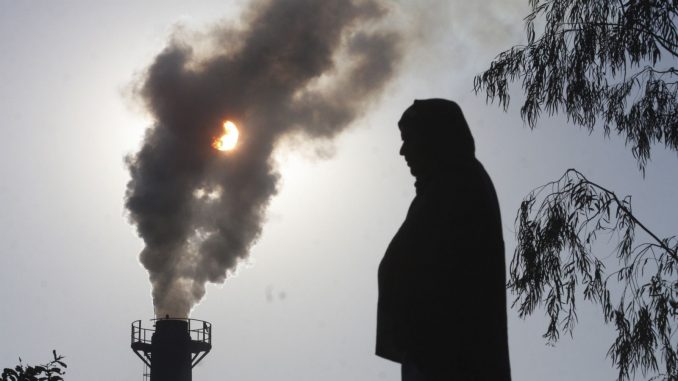
India can meet its national climate change goals promised under the Paris Climate Agreement, says report by World Resources Institute and Open Climate Network
New Delhi: Not only can India meet its national climate change goals promised under the Paris Climate Agreement, but can potentially exceed them while maintaining an annual gross domestic product (GDP) growth of 6-7%, said a new report released on Wednesday.
The report, “Pathways For Meeting India’s Climate Goals”, was released by the World Resources Institute (WRI), an international research organization, and the Open Climate Network (OCN).
Prior to the Paris Climate Summit in December 2015, India had announcedthat it aims to reduce the emissions intensity of its GDP by 33-35% by 2030 from 2005 levels.
The WRI study said that India can reduce its greenhouse gas emissions intensity by 43% below 2005 levels by 2030 by effectively implementing and further enhancing five current climate and energy policies.
“This study shows that India can meet both its climate and development goals without compromising one for the other. India is highly vulnerable to climate change impacts, and whether they are heatwaves or floods, the poorest are often the most affected. Economic development and climate action need to go hand in hand,” said Apurba Mitra, who is the lead author and policy lead for WRI India’s climate and energy programs.
The five ambitious policies analysed in the study are the Perform, Achieve, and Trade (PAT) scheme, dedicated freight corridor networks, a clean environment ‘cess’ or tax, renewable power by 2022 and energy conservation building code.
PAT scheme incentivises energy efficiency measures in the most energy-intensive sectors of the economy, while dedicated railway freight corridors are being preferred as government believes trains are a low-carbon mode of transport and would lead to reduction in pollution from the tail pipes of trucks.
India also has a clean environment tax of Rs400 per tonne on coal, lignite, and peat which is supposed to be used for projects that promote clean energy technologies. But one of its most ambitious scheme is to install 175 Gigawatts (GW) of renewable power by 2022 and have non-fossil fuel-based capacity in its energy mix to 40% by 2030.
The study stressed that these policies would not adversely impact economic growth as India could maintain annual GDP growth of 6-7% while taking strong action on climate.
“The climate and energy policies can also deliver significant development benefits, including reduced air pollution, a modest increase in jobs and bolstered investment in environmental initiatives. The policies could increase average household income by 3-5% by 2030,” the study stressed.
“These ambitious policies show that India is taking its climate change commitments seriously and embarking on concrete actions to address this planetary problem. India can tackle climate change, even while growing its economy and improving the environment. This is a win-win,” said O.P. Agarwal, chief executive officer of WRI India.
Source: Livemint

Leave a Reply